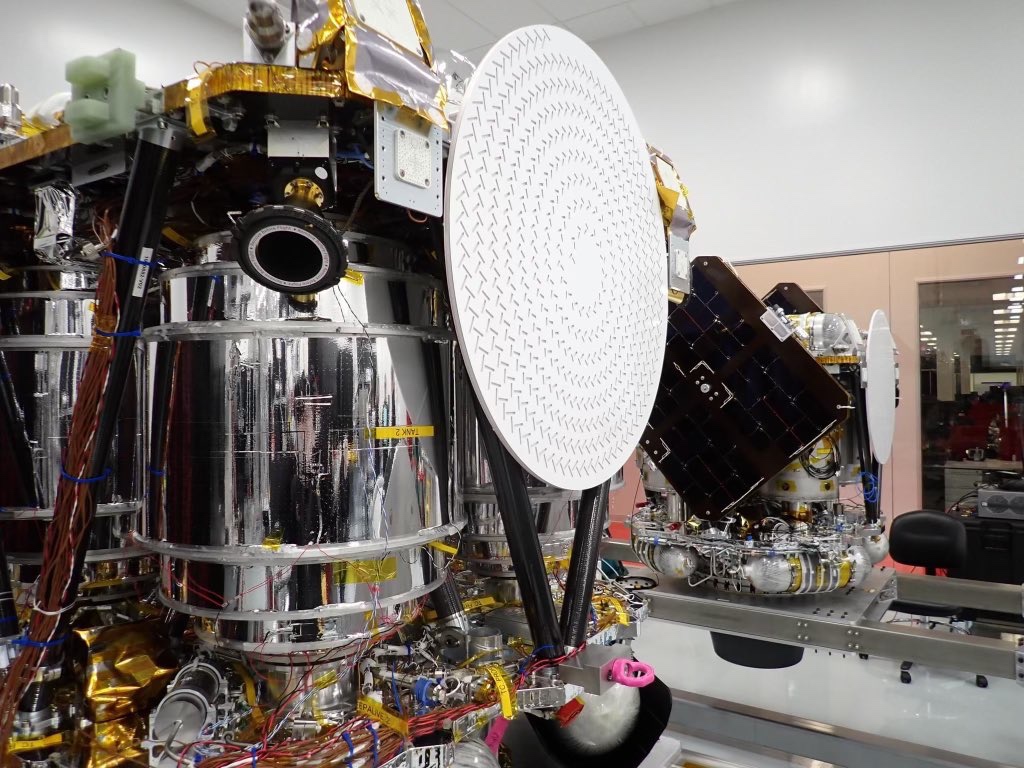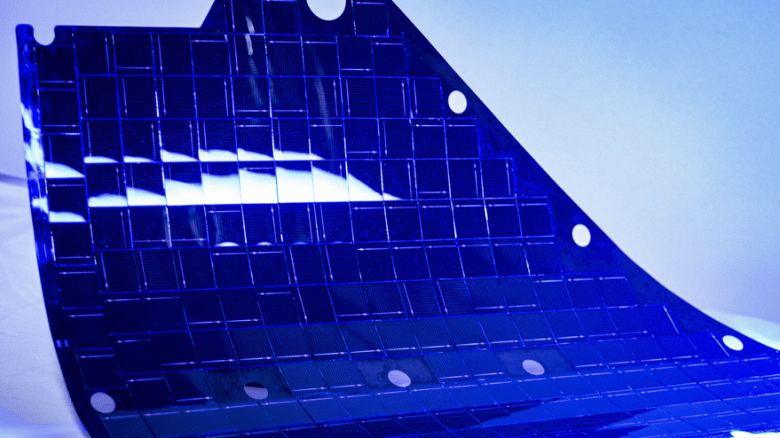BUSAN, South Korea — A NASA smallsat mission to Mars remains on track to launch this fall, although without a specific launch date yet.
In a presentation at the Committee on Space Research (COSPAR) 45th Scientific Assembly here July 15, Rob Lillis of the University of California Berkeley Space Sciences Laboratory said the Escape and Plasma Acceleration and Dynamics Explorers (ESCAPADE) mission was still scheduled to launch within a few months on the inaugural flight of Blue Origin’s New Glenn rocket.
ESCAPADE features two identical smallsats, called Blue and Gold, that will go into orbit around Mars. The spacecraft carry instruments to study the planet’s magnetosphere and its interaction with the solar wind.
The spacecraft, built by Rocket Lab, are almost ready for launch. The Blue spacecraft has completed environmental testing while Gold is going through final vibration testing. “It’s been really exciting to see these two probes finally come together after working on them for so many years,” he said.
The launch of ESCAPADE has arguably attracted more attention that the mission itself. The spacecraft are scheduled to launch on the first flight of New Glenn under a NASA task order awarded in February 2023 valued at $20 million.
The exact launch date for the mission, though, remains unclear. At an April meeting of a COSPAR planetary protection committee, a NASA official disclosed a Sept. 29 launch date for ESCAPADE. The ESCAPADE website also mentions a Sept. 29 launch, but adds that this is only a “placeholder” date.
Lillis said only that the mission was scheduled to launch this fall, adding that a September launch date listed in one slide “was out of date.” The launch window for Mars missions of any kind this year extends roughly through mid-October.
“We don’t know ourselves yet,” he said later in the talk on the specific launch date for the mission, adding that he was working closely with Blue Origin on launch preparations.
If ESCAPADE launches this fall, the spacecraft will arrive at Mars 48 hours apart in September 2025 and begin their one-year prime science mission in April 2026. Lillis said he hoped that the spacecraft could work in conjunction with several other Mars orbiters from NASA and other agencies to open a “golden era” of studies of the Martian magnetosphere.
ESCAPADE is also a test of the ability of small, low-cost spacecraft to conduct science missions beyond Earth. NASA selected ESCAPADE in 2019 as part of its SIMPLEx line of planetary science smallsat missions along with Janus and Lunar Trailblazer. Janus, though, was shelved after delays in its launch as a rideshare payload on the Psyche mission prevented it from reaching its planned asteroid flyby targets. Lunar Trailblazer is now scheduled to launch late this year as a rideshare on the second Intuitive Machines lander.
“It’s very much an experiment by NASA in reducing costs for planetary missions. Can you do a mission for approximately one-tenth of what NASA would have spent and what risks are you incurring by doing that?” he said. “NASA is very interested in the answer to that question.”



